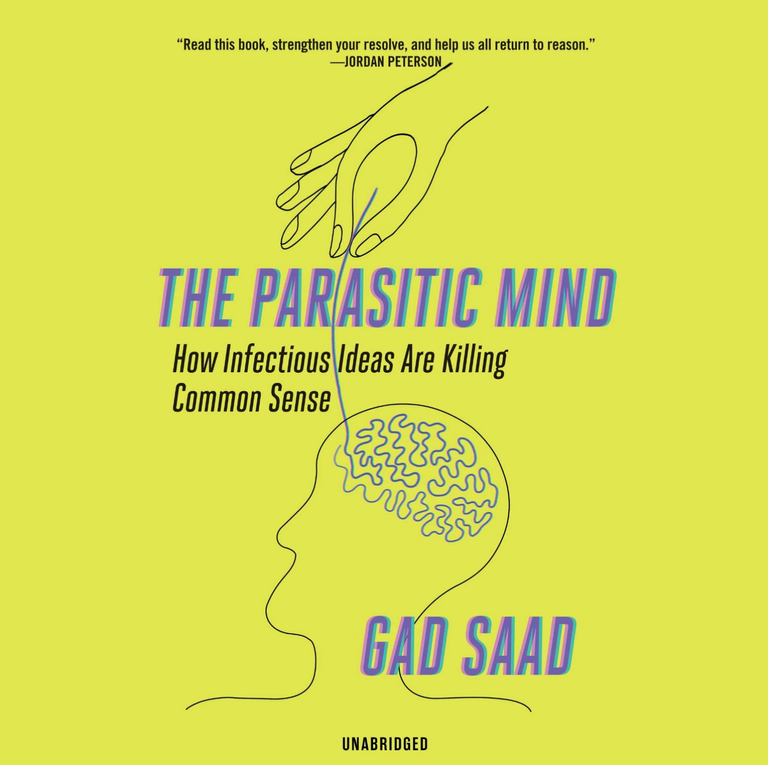The Parasitic Mind and Reductionism in Science
In the vast expanse of intellectual exploration, two seemingly disparate realms—Gad Saad's "The Parasitic Mind" and the reductionist approach in scientific inquiry—unveil a shared complexity. Both endeavors grapple with unraveling intricacies, be it the infectious nature of certain ideologies or the labyrinthine structures of living systems.
Reductionism, a guiding beacon in scientific exploration, dissects intricate systems into elemental constituents, believing that understanding the parts will illuminate the whole. Rooted in linearity and additivity, reductionism promises a straightforward ascent from simplicity to complexity. Yet, as we journey through the realms of neurobiology, cellular processes, and behavioral dynamics, the foundations of reductionism quiver, revealing the inherent challenges posed by the labyrinthine complexity of living systems.
In parallel, Saad's "The Parasitic Mind" delves into the notion of idea pathogens—infectious ideologies that infiltrate human thought, manipulate perspectives, and hinder rational discourse. Examining the impact of political correctness, identity politics, and other cultural trends, Saad highlights how these parasitic ideas hinder open dialogue, stifle intellectual diversity, and impede progress. The parallels with reductionism lie in the paradox of simplification, as both paths grapple with the disruptive force of variability.
"The Parasitic Mind" delves into the consequences of idea pathogens on various aspects of society. Saad argues that these infectious ideas have permeated institutions like academia and the media, influencing the narrative and stifling dissent. The book explores how intellectual conformity, driven by these parasitic ideologies, restricts the free exchange of ideas and erodes the foundations of a healthy and vibrant society. By examining real-world examples, Saad illustrates how these ideas can lead to the erosion of individual freedoms and the deterioration of common sense.
Reductionism, a cornerstone in the edifice of modern science, is predicated on the principles of linearity and additivity. The premise echoes the notion that by dissecting complex systems into their fundamental components, one can trace a linear trajectory of understanding, assuming predictability and determinism. This heralded approach, deeply ingrained in Westernized scientific thinking, promises a straightforward ascent from simplicity to complexity.
The paradox of predictability and variability reductionism unfolds when the foundational premise of predicting a system's future state based on its initial conditions clashes with the complex and dynamic nature of cellular processes. In this intricate dance, the expectation of predictability encounters the disruptive force of variability, commonly labeled as noise. This challenges the reductionist aspiration to eliminate imperfections in measurement, prompting a conundrum. We are left questioning the practicality of minimizing variability while simultaneously adhering to the escalating demand for precision imposed by the reductionist perspective.
In the quest for precision, advanced applications of reductionism lean on the crutch of blueprints—preconceived representations of the mature state of a system. These blueprints serve as guides for quality control, ensuring that the intricate dance of components aligns seamlessly with the anticipated outcome. Yet, as we navigate the biological intricacies, the question arises: Can the symphony of life truly be confined within the rigid boundaries of a predetermined blueprint? Similarly, Saad introduces the concept of intellectual conformity—a blueprint that guides thought within predefined boundaries. Much like reductionism relies on blueprints for quality control, infectious ideas seek to shape the narrative within predetermined frameworks.
In acknowledging the limitations of both reductionism and the encroachment of idea pathogens, a call emerges for a paradigm shift—a departure from simplistic, linear approaches to a more holistic understanding. Both narratives invite us to explore the uncharted territories of complexity, embracing the “chaos” that defies rigid frameworks.
The transition from reductionism and resistance to idea pathogens beckons us into the embrace of complexity. The interconnected elements of human thought and societal dynamics form a symphony of non-linear dynamics, defying the simplistic understanding championed by reductionism and idea pathogens alike.
As we reflect on the parallel challenges presented by Gad Saad's exploration of idea pathogens in "The Parasitic Mind" and the inherent limitations of reductionism in scientific inquiry, a common narrative emerges:
“The intricate dance of complexity, whether in the realms of human thought or living systems, eludes simplistic frameworks. The call to move beyond reductionism and resist the encroachment of parasitic ideas resonates, urging us to embrace the complexity, variability, and chaos inherent in our collective journey of exploration and understanding.”
The Parasitic Mind: How Infectious Ideas Are Killing Common Sense
